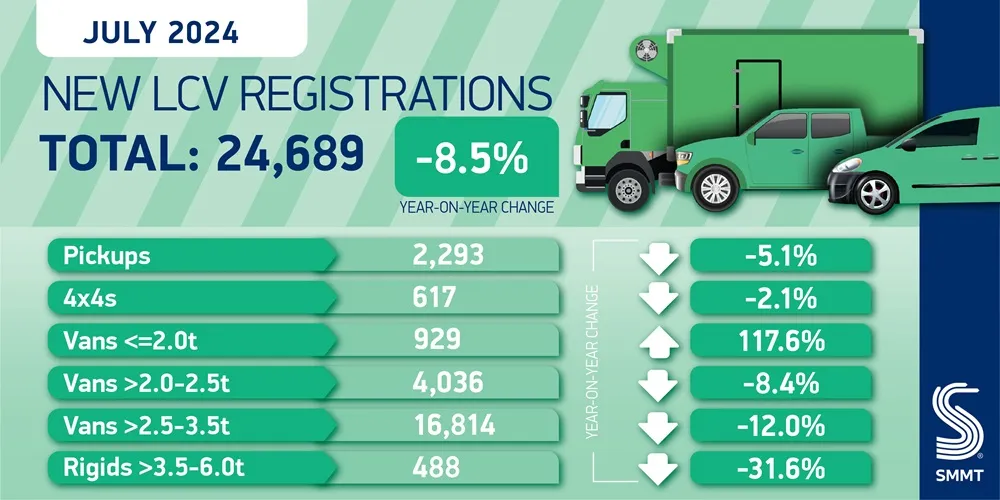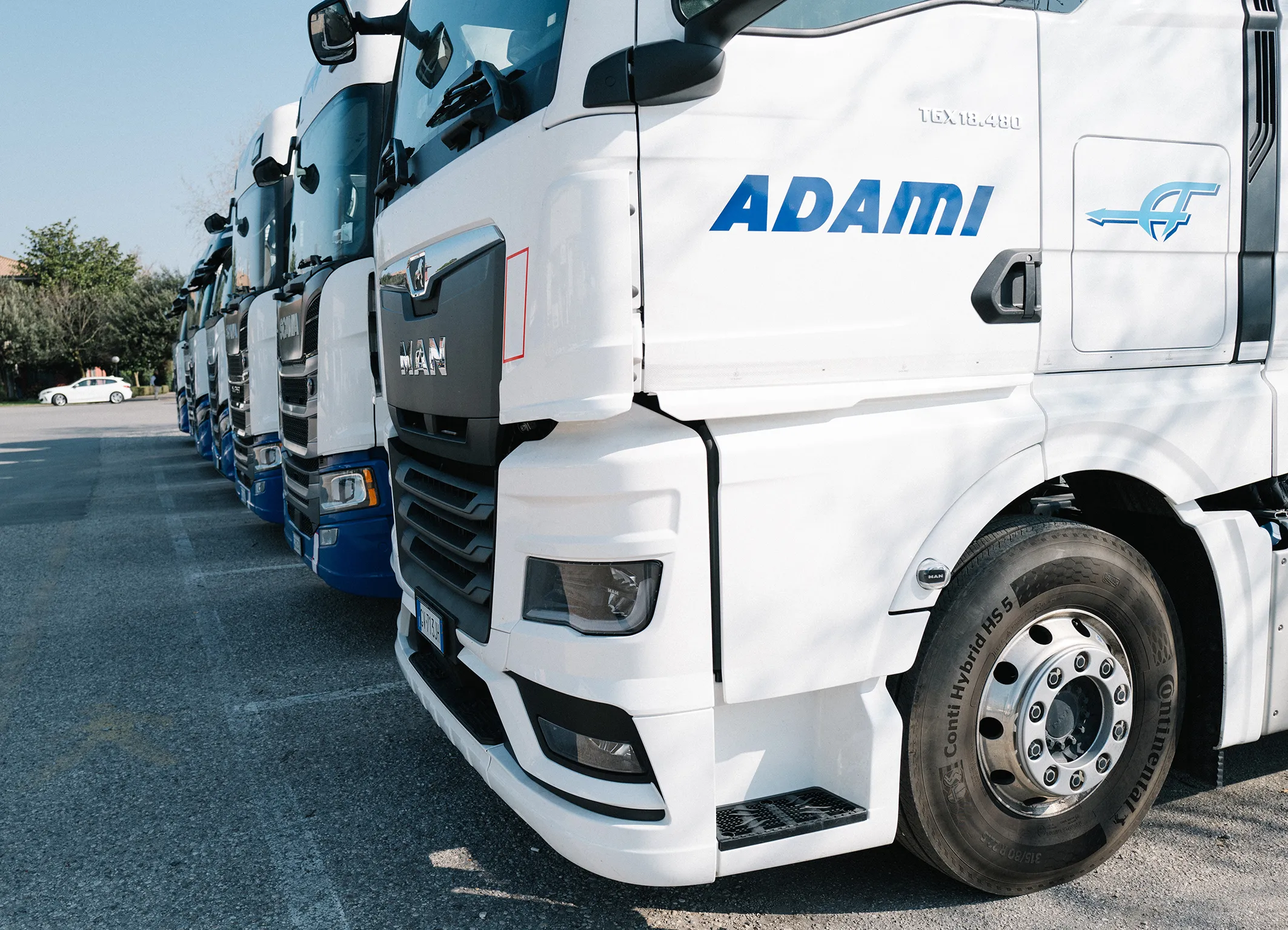In July, the UK’s new light commercial vehicle registrations fell 8.5% year-on-year to 24,689 units, though the market is up 2.7% year-to-date. Smaller van uptake more than doubled, but electric van registrations dropped 14.6%, emphasising the need for better ChargePoint infrastructure and fiscal incentives.
SMMT: Demand for New Vans Down in July, But 2024 Market Remains at Three-Year High
The UK’s light commercial vehicle (LCV) market dropped -8.5% in July, with 24,689 vans, 4x4s, pickups and taxis joining the road, according to the latest figures published today by the Society of Motor Manufacturers and Traders (SMMT). The performance is compared with a strong July in 2023 – the best in three years – however, which came amid a record-equalling 17 consecutive months of market growth. With that exceptional run of demand ending only in May this year, the overall market remains robust, with registrations up 2.7% year to date to become the best first seven months since 2019.1
The SMMT reported the dip in demand in July affected most segments, with the uptake of the largest vans down -12.0% to 16,814 units – still representing more than two-thirds (68.1%) of the overall market – while -8.4% fewer new medium-sized vans were registered. Deliveries of pickups and 4x4s also fell by 5.1% and -2.1%, respectively. However, there was a spike in demand for the smallest vans in July, with registrations doubling (117.6%) to 929 units. While smaller volumes can accentuate fluctuations, the new small van market has been robust across 2024, with demand up 42.0% in the year to date, supported by new model launches.
BEV Availability Grows, July Registrations Fall: Urgent Need for Infrastructure and Incentives
Manufacturers are also launching new battery electric vehicle (BEV) models, with 28 now available to UK buyers – up from 25 last year – providing competitive payloads and ranges to meet various needs, according to the SMMT report. There were, however, fewer fleets going green in July, with new BEV registrations down -14.6% to 1,415 units. Since January, BEVs have accounted for 5.1% of all new vans – a share that includes those weighing up to and equal to 3.5 tonnes (4.8%) and those weighing above 3.5 to 4.25 tonnes (0.3%) – meaning zero emission uptake is down -7.0% across the year.2
Given that the government mandates manufacturers to ensure BEVs comprise at least 10% of new van sales in 2024, demand needs to increase significantly in the remainder of the year, especially with the number plate change month of September coming soon. While major industry investment has put more BEVs on the road than ever before, uptake must accelerate with all stakeholders playing their part. Mandated targets for van-suitable charging infrastructure are needed fast, while the Plug-in Van Grant must be maintained beyond April 2025 if more businesses are going to decarbonise.
BEV Registration Forecast Lowered Amid Infrastructure Concerns
The latest outlook for the year remains robust, with 351,000 units expected this year, a 2.8% increase on 2023. However, the BEV share of LCV registrations under 3.5t has been revised downwards to 6.6%.3
Mike Hawes, SMMT Chief Executive, said, “Britain’s new van market remains robust following a record-equalling growth run and, despite a dip in June and July, demand will resume with manufacturers offering impressive product line-ups. Declining uptake of the very greenest models remains a major concern, however, given the UK’s zero emission ambitions. Industry has invested – and continues to commit – billions into this transition but manufacturers cannot deliver this alone. Given the paucity of van-specific charging infrastructure, we need an equally ambitious mandate for ChargePoint rollout, one that supports operators right across the country.”








